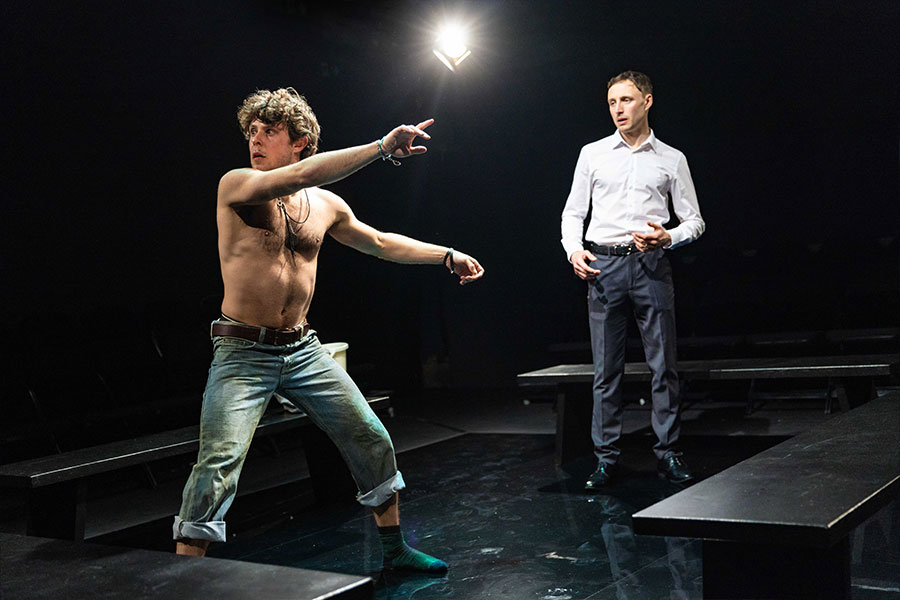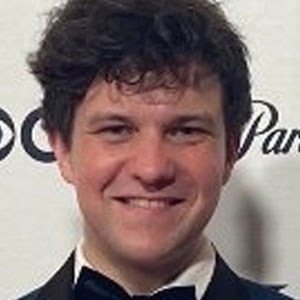Leaves of Glass at the Park Theatre – review
Philip Ridley’s drama returns in a new north London production

Every family has murky moments in its history, some murkier than others. Few families are good at talking about it, and that can lead to all kinds of heartache and woe further down the road. Philip Ridley’s grippingly tense drama takes those brooding secrets to their extreme and then still carries them on a little further.
Steven is a young professional, settled and successful. He has a wife, and he is a doting son to his widowed mum. He runs his busy graffiti cleaning business in the East End of London where he shelters his damaged younger brother and offers him work when nobody else will employ him following a history of alcohol abuse and emotional break downs.
Max Harrison’s chilling new production of Ridley’s 2007 play is rivetingly taut in the confines of Park Theatre’s studio space. Harrison leans into the rising tensions and carefully but deliberately reveals the brutal truth behind family life as the unspoken becomes an ever louder and more dominant presence. It’s that purposefully slow reveal that makes this so engrossing – at nearly two hours and with no interval it still manages to fly by.
Kacey Ainsworth is the wonderfully down-to-earth mum of Steven and younger brother Barry. She’s “buried two parents and a husband” but never lets her tough exterior falter. Tragedy will not stop this matriarchal figure from fussing and forgiving and Ainsworth is beautifully matter of fact in her performance. She copes with the breakdowns and bouts of depression that are felt through the family as “fluey-bug things” never quite confronting or accepting. It’s a touchingly grounded performance.
Joseph Potter’s troubled Barry is a dishevelled mass of nervous paranoia. Determined to be an artist and putting his faith in the healing power of crystals, Potter swings from wild moments of disjointed psychosis to devastating clarity of mind. Steven’s wife, Debbie provides some kind of balance and order within the emotional turmoil. Katie Buchholz keeps a subtle lid on Debbie’s frustrations and fears.
Maintaining an enthralling intensity throughout is Ned Costello’s Steven. Affected by grief and grappling with ever shifting memories, Costello simmers with a cacophony of jealousy, denial and brooding anger. He relentlessly and quite brilliantly rises and falls in mood and tone like a spring being wound, released and rewound over and over again.
The dialogue bounces along briskly and Sam Glossop’s subtle underscore adds to the tension. Kit Hinchcliffe’s crisp and uncluttered design keeps the action sharply focussed in its in-the-round setting. As Ridley toys with the idea of truth and how this can be manipulated and controlled, he tempts his audience by drawing us in and then continually shifting positions once again to reveal further layers of complexity and knocking us off course to compound the discomfort we feel with each revelation.












